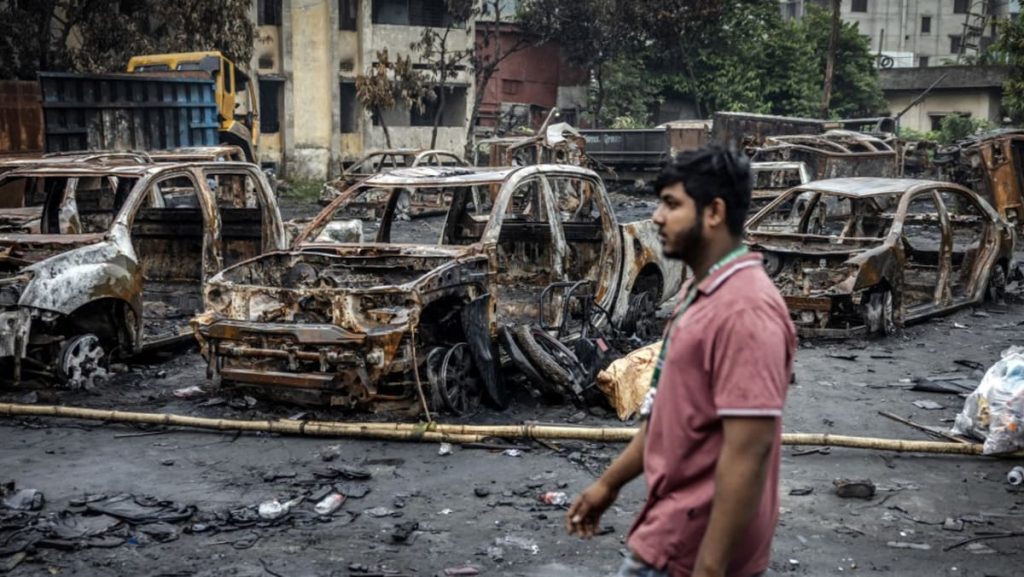The capital city of Dhaka in Bangladesh faced a tense situation following the resignation and abrupt departure of autocratic ex-premier Sheikh Hasina. The police force suddenly disappeared from the streets, creating a law and order vacuum in the city of 20 million people. Hasina had been in power for 15 years and the police were blamed for a lethal crackdown on protests that led to her ouster, with dozens of officers among the casualties. Many officers refused to return to work until their safety on duty was guaranteed.
After a week of absence, the police force in Dhaka resumed patrols following late-night talks with the new interim government led by Nobel laureate Muhammad Yunus. The police association ended their strike and officers returned to work, managing traffic on Dhaka’s streets. The student-led protests against Hasina’s government had been largely peaceful until the police attempted to disperse them violently, leading to arson and vandalism attacks on many police stations. Amid the chaos, the army stepped in to guard the reopening police stations, while the students took it upon themselves to restore law and order in the city.
The national police union reported that around 450 out of 600 police stations in Bangladesh were targeted in arson attacks over the past month. The army, which mostly abstained from participating in the crackdown on protests, took on the responsibility of guarding the police stations that were reopening. Despite the animosity towards the police, the absence of officers on the streets forced students to step up and act as traffic wardens, neighborhood watch patrols, and guards at places of worship to prevent looting and reprisal attacks. This quick action by the students helped in settling the unrest and restoring some semblance of normalcy in the city.
The abrupt departure of Sheikh Hasina left Dhaka in a state of uncertainty and chaos, with the sudden absence of the police force creating a vacuum in law and order maintenance. The police, who were blamed for the violent crackdown on protests, refused to return to work without guarantees of their safety. Late-night talks with the interim government led to the end of the police strike, and officers resumed patrols in the city. Although the situation was tense with widespread arson attacks on police stations, the army’s intervention and the students’ quick response helped restore order in Dhaka.
The student-led protests that led to Hasina’s resignation and the subsequent law and order crisis in Dhaka highlighted the power struggle in Bangladesh between the government and the people. The police force, having borne the brunt of the backlash from the protests, faced challenges in regaining trust and ensuring their safety on duty. The coordination between different institutions, such as the army and student volunteers, was crucial in restoring normalcy in the city. The incident serves as a reminder of the importance of effective governance and the need for dialogue and cooperation between authorities and citizens to maintain peace and security in the country.


